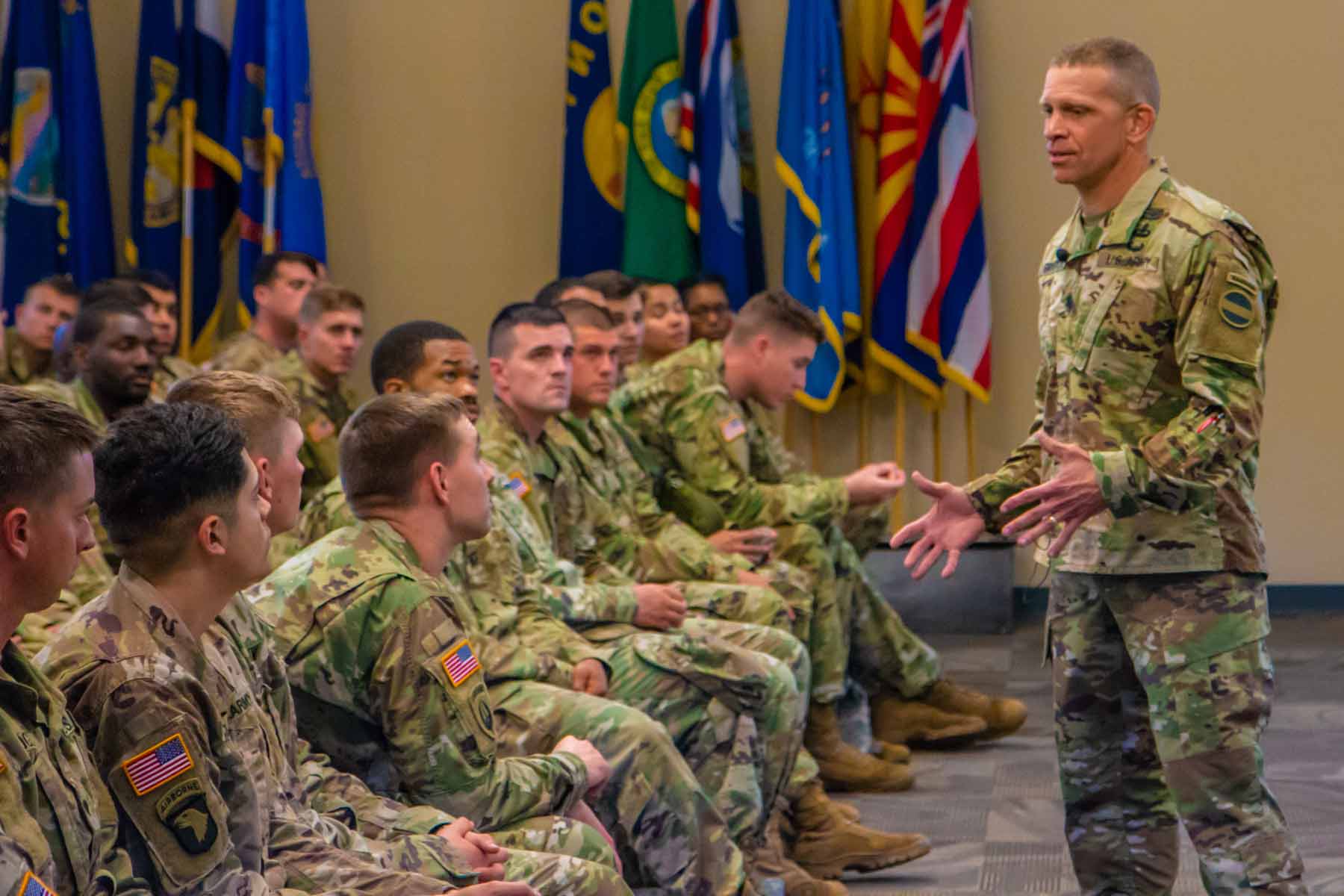
The Army‘s top enlisted leader wants soldiers to consider taking a break.
The Career Intermission Program allows officers, warrant officers and noncommissioned officers on active duty or in a full-time role in the reserve components to take up to a three-year break from the military. The catch is that, for every one month a soldier is gone, they owe the Army two months.
But Sergeant Major of the Army Michael Grinston says it’s a good way for troops to earn a degree, take care of family issues, or acquire a professional skill.
Read Next: ‘Largest Purchase of Exercise Equipment Ever’: How One Company Supplied Gear for the ACFT
“As an Army, we must stay flexible as we fight to retain the talent we have cultivated in our soldiers,” Grinston said in an Army-wide email Thursday that was reviewed by Military.com.
The program started as a trial in 2014 and allowed only a limited number of soldiers to participate. It became permanent in May without a clear limit on how many troops can use it.
Program participants retain their health care and on-base privileges, but would need a new source of income. According to a May memo to the force, soldiers taking a break will earn only two days’ worth of pay a month. All special incentive pay is revoked. And participants do not accrue GI Bill benefits while in the program.
Yet Grinston prefers soldiers to consider the program as an alternative to outright leaving the Army.
“I do not want to lose the focus on troops reenlisting at their eligible gates,” he said in the email. “However, temporary circumstances have been known to divert Soldiers into permanent separation. It is our job to make sure Soldiers are at least aware of this opportunity before they permanently get out.”
— Steve Beynon can be reached at [email protected]. Follow him on Twitter @StevenBeynon.
Related: Need a Break? Air Force Expands Sabbatical Program
© Copyright 2021 Military.com. All rights reserved. This material may not be published, broadcast, rewritten or redistributed.
